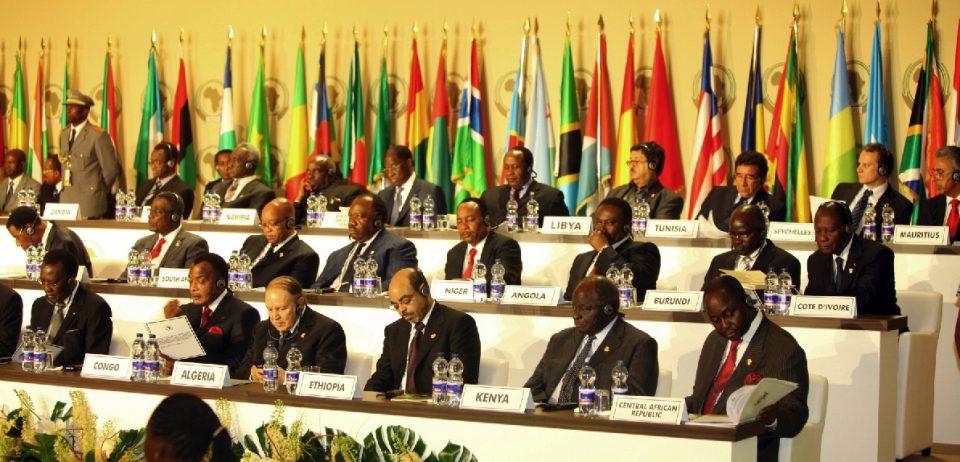Fifty-nine years have passed on since the proclamation of the need for a United States of Africa and with it hopes and dreams. In 1963, Julius Nyerere stated: “For the sake of all African states, large or small, African unity must come, and it must be real unity.” The passage of time has taken away these dreams of a people divided within and across borders.
In the past 50 years, there has been much preoccupation with the idea of Pan-Africanism, celebrated on Africa Day, 25 May. Pan-Africanism has been touted as a panacea for Africa’s problems. Yet, 50 years on, Africa has become even more divided, and the script remains familiar: a significant rise in intrastate conflicts, including secessionism, election-related violence, resource-driven motives, and violence waged by formations that amount to criminal enterprises, terrorist groups and xenophobic “social movements” foremost among these.
When all is considered, the vision of the United States of Africa was no more than a pipe dream.
Pan-Africanism essentially seeks to unite people of African descent under common interests, with the early ideals emphasising the common interests between Africans and the black diaspora. As a movement, it was dedicated to the fight for the independence of the African continent as well as unity among black people. From this pretext, the idea of a United States of Africa was born. Marcus Garvey’s ideas influenced many African leaders such as Kwame Nkrumah in forming the Organisation of African Unity (OAU).
Fast forward to 2009, the newly elected chairman of the AU, Muammar Gaddafi revived the dream of a United States of Africa, advocating for a single African military force, a single currency and a single passport for Africans to move freely. His removal from power in 2011 during the US-led Nato military no-fly zone and blockade came to signify the end of the dream of the United States of Africa. How else can one explain the idea being synonymous with Gaddafi’s proclamation of a single African currency?
Despite the articulated goals by Africa’s founding fathers such as Nkrumah and Nyerere for the United States of Africa, it seems the ideals of Africa’s unity only visit upon the continent’s consciousness during Africa Day celebrations. Furthermore, sporadic violence targeting foreign nationals — which is often characterised as xenophobia — invokes similar responses on the importance of Pan-Africanism and unity among Africans that are more empty talk than anything.
Focus on Africa’s division has often focused on the notion of colonial borders and how they have undermined the integration of the continent. It is a fact that artificial border designs disrupted the livelihoods of Africans’ nomadic lifestyles because they could no longer move freely and practice their daily activities. This inflicted economic hardships and inconveniences. Such imposed limitations forced people to compete for scarce resources such as land or water. Conflict over resources have come to characterise most African conflicts, pitting Africans against one other. Although current conflicts, including secessionist conflicts as in the Anglophone crisis in Cameroon, can be attributed to the imposition of artificial borders (among other causes), less emphasised is the lack of unity in African states that is translated to the regional level.
In this instance, we see how bad governance, political intolerance and social marginalisation have contributed to conflict and internal instability on the continent. Unfortunately, this has undermined the goal of achieving African unity as well as political and economic integration. Internal disunity has translated to the regional level where African states often do not agree on an array of issues.
In addition to that, conflict-ridden countries have contributed to forced migration, often leading to local conflicts in migrant-receiving countries. Subsequently, there have been anti-migrant sentiments leading to xenophobic attacks as witnessed as recently in Malawi and South Africa. If anything, internal conflict indicates the lack of unity that has weakened the goal of Pan-Africanism to unite Africans internally. I suggest rethinking and conceptualising ‘Pan-Africanism as responsibility’ as we celebrate Africa Day.
‘Pan-Africanism as responsibility’
Conceptualising Pan-Africanism as responsibility is the first step towards achieving the dream of establishing the United States of Africa. Bad governance, political intolerance and social marginalisation have become threats to the goal of attaining the Pan-African dream of a United States of Africa.
I contend that the leading people in the adoption of the ideals of Pan-Africanism and the dream of establishing the United States of Africa were African leaders, while at the same time undermining unity in their countries, hence the need to question whether the leaders have become an enemy of Pan-Africanism.
To come up with solutions, it is important to conceptualise “Pan-Africanism as responsibility” and redefine Pan-Africanism to include the responsibilities for good governance and political tolerance. The unity fostered in states can only be translated to the regional level where it lacks after Pan-Africanism is treated not as an imaginary ideal, but a responsibility anchored in good governance, political stability and adherence to democratic dictates. Only then will Africans be able to unite in their countries first before elsewhere. Without sound nation-building, there cannot be the United States of Africa — yet. Pan-Africanism risks becoming an empty catch-all phrase, and the dream of a United States of Africa remains elusive.
As we celebrate Africa Day in 2022, may African nations strive to improve the livelihood of citizens first, so there can be unity in Africa.
This piece originally appeared in Mail&Guardian

